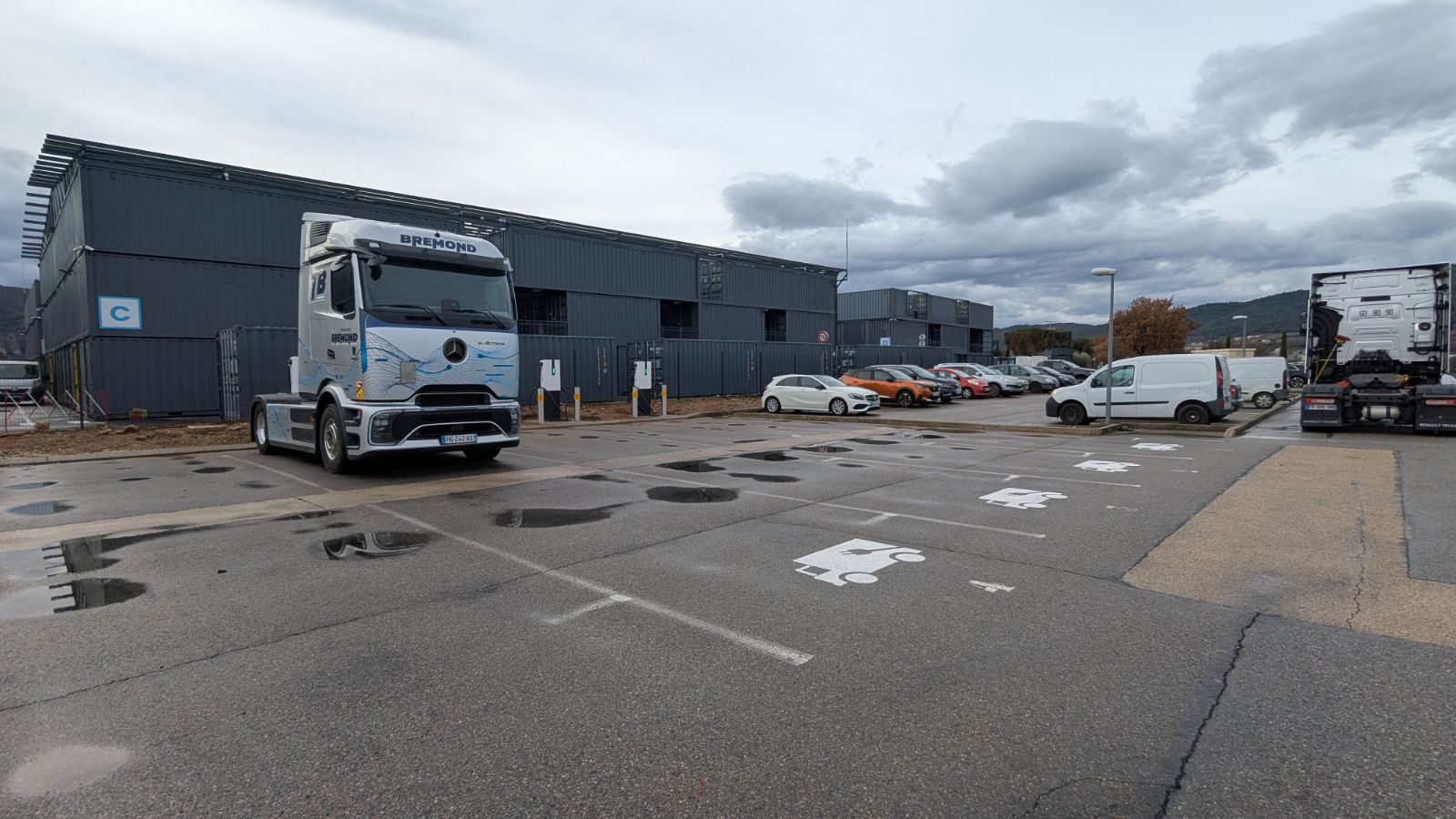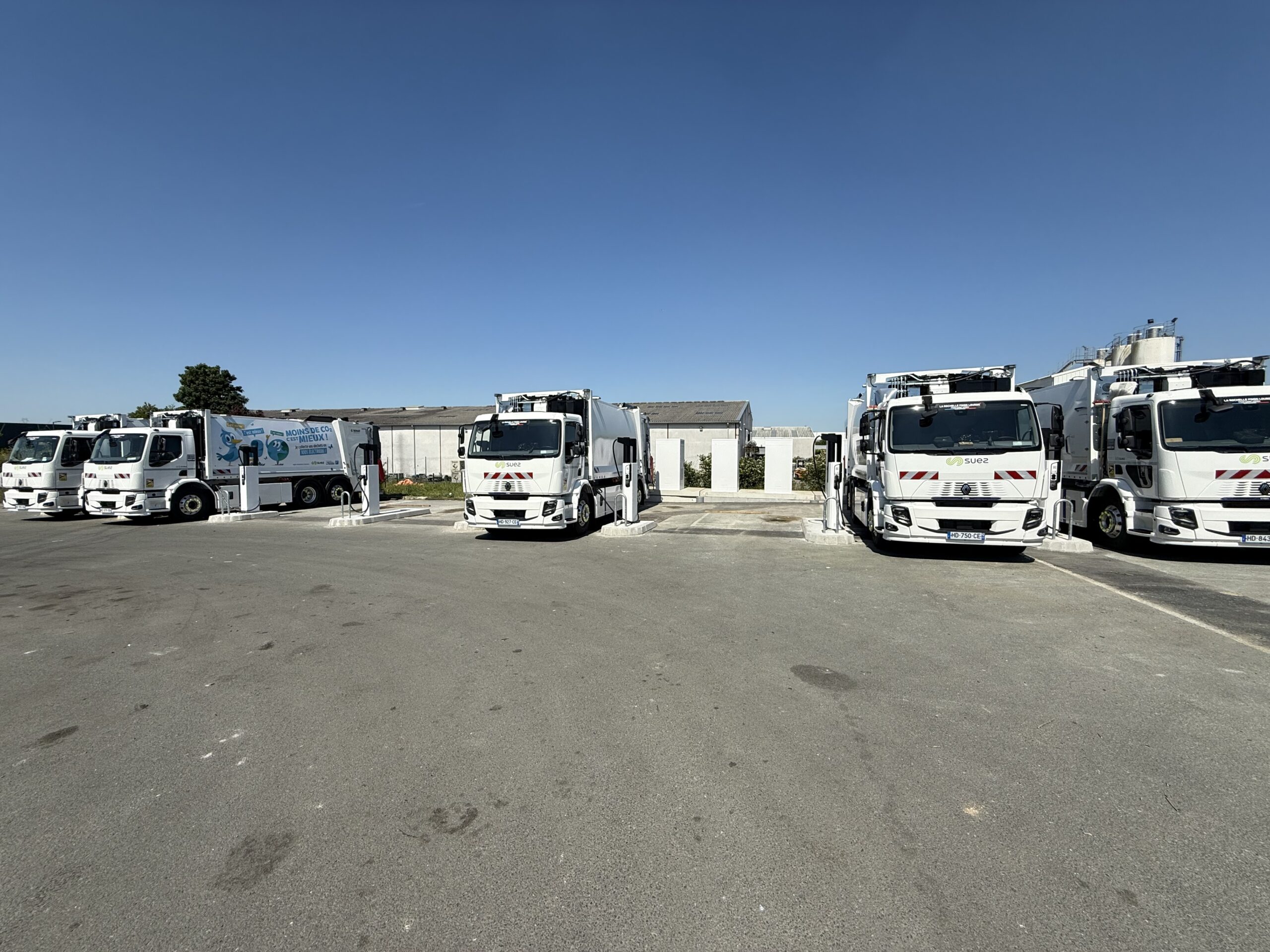Switching to electric Heavy Goods Vehicles (HGVs) can feel like a financial leap, not just due to the cost of the vehicles themselves, but also the infrastructure needed to support them. However, focusing solely on upfront costs is short-sighted. In the long run, electric HGVs present an opportunity to reduce operational expenses and strengthen your competitive edge, provided the transition is handled strategically.
Think Total Cost of Ownership, not just vehicle price
It’s no secret that electric trucks currently come with a higher purchase price than diesel equivalents, in some cases, two to three times more. But this is only one piece of the puzzle.
When assessing long-term value, Total Cost of Ownership (TCO) is what truly matters. TCO includes not just capital expenditure (CAPEX), but also all operating costs over the vehicle’s lifespan: electricity, driver wages, repairs and maintenance, insurance, taxes, tolls, and more.
According to figures from the French Comité National Routier (CNR), vehicle purchase accounts for only around 15% of a diesel HGV’s TCO, and 25–30% for an electric equivalent. The majority, 70–85%, comes from day-to-day operating costs.
Despite the higher CAPEX, electric HGVs can reach near parity in TCO, especially for high-mileage use cases. And with battery prices continuing to fall, full-electric vehicles are becoming the more cost-effective option faster than expected.
Bottom line?
The cost gap is closing and for many operators, electric is already the smarter choice over the vehicle’s full life cycle.
The power of operational cost optimisation
Since operating costs make up the largest slice of the TCO pie, cutting those expenses is key to maximising profitability. This is where electric fleets hold a serious advantage especially when it comes to charging at depots.
Unlike diesel refuelling, electric charging presents unique opportunities for cost control and optimisation, particularly when managed intelligently.
Smart charging: a game-changer for cost efficiency
-
Electric fleets open the door to new optimisation strategies unavailable to diesel operators. A smart charging management system can significantly lower your energy bill. Here’s how:
1. Off-peak charging (time-of-use)
By scheduling charging sessions during off-peak hours, when electricity rates are lower, operators can save up to 20% on energy costs. A smart management system can automate this process while ensuring vehicles are ready for their next shift.
Bonus: if your depot is equipped with solar panels, charging can also be timed to align with peak photovoltaic generation for maximum self-consumption.
2. Spot market integration
Some energy contracts allow access to dynamic electricity pricing. With a system that monitors the spot market in real time, charging can be automatically scheduled during periods of low market prices, offering potential savings of 30–50% compared to unmanaged charging.
3. Vehicle-to-Grid (V2G) capabilities
Electric trucks don’t just consume electricity, they can also return it to the grid. With bidirectional chargers and the right setup, fleet batteries can participate in grid balancing services, such as frequency regulation or reserve capacity, turning idle vehicles into a new revenue stream.
4. Hybrid charging models (Public & Private)
If your depot’s chargers aren’t in constant use, opening them up to external users, partners, subcontractors, or the general public, can generate additional income. Smart charging platforms can manage access, pricing tiers, and usage authorisations with ease.
These optimisation strategies can drastically reduce your electricity costs and in some cases, offset them entirely, transforming your TCO and giving you a competitive edge over diesel fleets.
Infrastructure flexibility is essential
None of these strategies work without the right infrastructure. To fully benefit from smart charging, your site needs to be designed for flexibility.
Low-powered chargers that take too long to fully charge a vehicle can block efficient scheduling and reduce cost-saving potential. A well-sized charging station, both in terms of power and number of connectors, is critical for day-to-day operations and long-term ROI.
That’s why your charging strategy should be treated as a core component of your TCO planning, not an afterthought.
How Chargepoly supports your transition
At Chargepoly, we go beyond selling chargers. We offer a complete, turnkey solution to support your electric transition, from strategic planning and site design to smart charging systems and ongoing support.
We help our clients:
- Assess their operational and energy needs
- Design scalable, high-power charging hubs
- Integrate smart management systems
- Secure financing and maximise ROI
Our approach is holistic: we consider both your initial investment and long-term operational costs to ensure your shift to electric HGVs is not only sustainable, but profitable.
Ready to lower your TCO and take the lead in transport decarbonisation?
Get in touch with our team to discover how our smart charging solutions can supercharge your fleet’s profitability.



